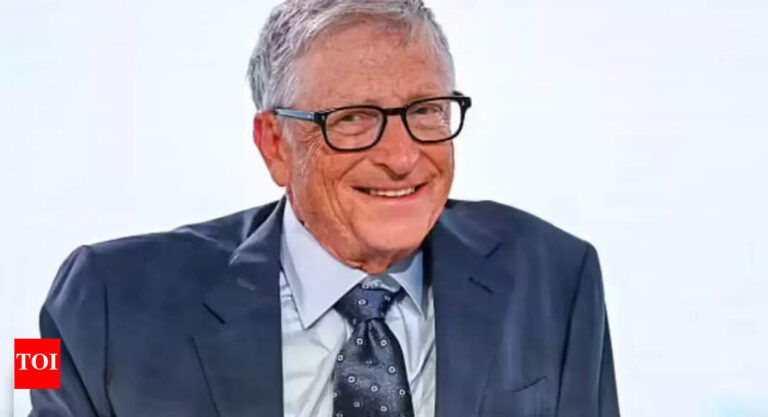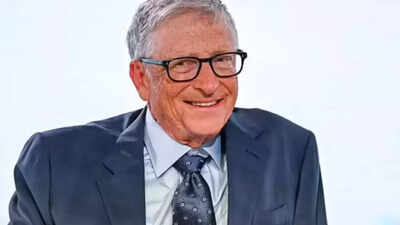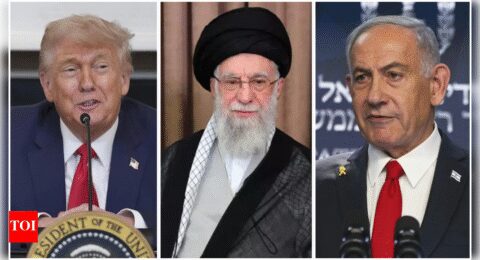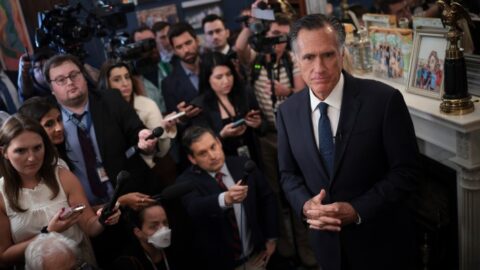In a record-breaking philanthropic commitment, Bill Gates announced that the majority of the Gates Foundation’s $200 billion spend over the next 20 years will go to Africa with a focus on partnering with governments that prioritize the health and wellbeing of their people.Addressing over 12,000 government officials, diplomats, health workers, development partners, and youth leaders in person and online at Nelson Mandela Hall at the African Union and online, he underscored the critical role of African leadership and ingenuity in driving the continent’s health and economic future.Gates said, “Most of that money will assist you in addressing issues here in Africa.” The commitment marks a change in philanthropic approach — from unlimited, multi-generational giving to directed, time-limited effect on measurable progress within Gates’ lifetime.
Bill Gates outlines key focus areas
A. Transforming primary healthcare
Among the top priorities of Gates’ investment is building up primary healthcare in African nations. The Bill & Melinda Gates Foundation, which has been operating in the continent for decades, will work on:
- Maternal health and nutrition: Gates underscored the fundamental significance of investing in women’s health prior to and during pregnancy. Healthy mothers are the building blocks for prevention of infant mortality and healthy childhood development.
- Nutrition in the first 1,000 days: From pregnancy to a child’s first four years, nutrition and healthcare interventions have disproportionate effects on cognitive development and health throughout life. Providing access to vaccination, appropriate nutrition, and medical care in this period has the potential to cut stunting and disease dramatically.
These focused investments in health seek to lower child mortality, address malnutrition, and enhance accessibility to health care at the community level, particularly in rural and underserved populations.
B. Increasing access to quality education
Education is the second pillar of importance in Gates’ vision. He reiterated that educating Africa’s youth will be essential to economic growth that is sustainable. The foundation will focus on:
- Expanding enrollment in early childhood education, particularly for girls and marginalized groups.
- Enhance teacher training and equipment, ensuring better teaching quality.
- Utilise digital learning platforms and remote learning technology in order to bypass infrastructure and geographical constraints.
The strategy aims to equip young Africans with skills applicable to the contemporary economy and allow them to engage fully with technological and entrepreneurial environments.
C. Artificial intelligence for health innovation
Bill Gates called on young African innovators to use artificial intelligence (AI) to solve healthcare issues specific to the continent. He highlighted ongoing AI initiatives, including:
- AI-equipped ultrasound devices in Rwanda that aid in the diagnosis of high-risk pregnancies.
- Mobile health apps used to remotely monitor patient symptoms.
- By promoting indigenous AI creation, Gates sees Africa bypassing conventional healthcare constraints and developing affordable, scalable technologies for enhanced diagnosis, treatment, and disease prevention.
Bill and Melinda Gates Foundation closing by 2045
According to the ET reports, Gates announced that the Bill & Melinda Gates Foundation will close shop by 2045, in tandem with the end of his wealth distribution. The sunset provision is aimed at:
- Maximising the impact of the funds given within a specified period.
- Ensuring a streamlined, goal-driven strategy without being weighed down by institutional inertia.
- Stimulating the foundation to operate with a sense of urgency and accountability.
- This breaks from conventional models of philanthropy that are forever going.
Gates’ commitment is made at a time of sharp cuts in official foreign assistance to Africa, especially from the United States. As a result of policies like the “America First” strategy, aid initiatives like those to combat HIV/AIDS, malaria, and tuberculosis have received reductions in funds.
Bill Gates steps in to protect African health gains
This retrenchment risks undoing decades of health gains and has sparked warnings over the future sustainability of essential services. Gates’ personal investment is not only philanthropic but also strategically valuable to:
- Close the widening funding gap in African healthcare and development.
- Provide continuity of progress in the face of geopolitical changes.
Bill Gates’ 1% wealth to be left behind his children
In a significant personal statement, Gates affirmed that just 1% of his wealth is to be left behind for his children. He attributed this as a calculated move to:
- Prevent too much inherited wealth from stifling their drive.
- Empower his wealth as an agent for world good instead of individual legacy.
This principle would fall in line with the giving pledges of other billionaire donors, reinforcing redistributing wealth to address the world’s problems. If fully implemented, this $198 billion pledge can:
- Increase access to healthcare by tens of millions.
- Lower child and maternal mortality rates dramatically.
- Improve education quality and access in several countries.
- Create a generation of technologically advanced social innovators using AI for social impact.
- Be a model for social impact philanthropy globally.
Gates’ vision reflects a synergistic approach solving the causes of poverty and underdevelopment through pooled investments in health, education, and technology.Also Read | 16-year-old Henry Buckley becomes the United States’ youngest male judge, recognised by Guinness World Records





